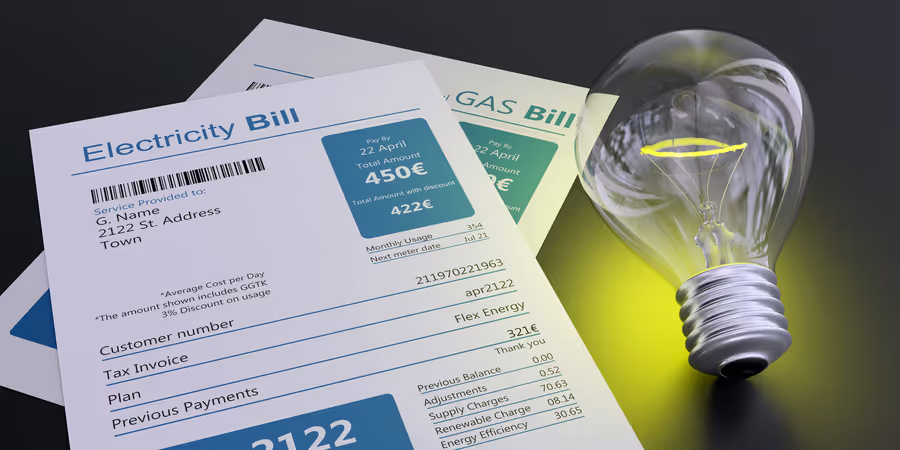If you have ever booked a flight in the UK, you might have noticed that VAT, or value added tax, doesn’t appear in the total price in the way it does on most other goods and services. This can leave people scratching their heads.
So, is there VAT on flights in the UK, and if not, what taxes do apply? In this article, we’ll break down how VAT works in the airline industry, explain what zero-rating VAT means, and look at air passenger and fuel duty.
Understanding VAT and zero-rating
VAT is a tax added to most goods and services in the UK, with the standard rate currently at 20%. Some items, like food and children’s clothes, are zero-rated, meaning VAT is charged at 0%.
Zero-rated does not mean the items are completely tax-free. Businesses can still reclaim any VAT they pay on goods or services used to supply these zero-rated items. For example, a bakery selling bread (zero-rated) can reclaim VAT on flour, equipment, and electricity used in production.
This differs from VAT-exempt items, where no VAT is charged on the sale, and businesses generally cannot reclaim VAT on related costs. If you want a full explanation of the difference between zero-rated and exempt VAT, you can read our guide.
Understanding this distinction is important when looking at flights. While international flight tickets are zero-rated and do not include VAT, ancillary services or domestic flights may be exempt or standard-rated, meaning VAT could apply.
{{tax-guide}}
Is there VAT on flights? How VAT works with airlines
Most flights in the UK are zero-rated for VAT, meaning no VAT is charged on the ticket itself. According to HMRC, all scheduled flights are zero-rated, including international trips, single journeys, round trips, and flights to certain offshore locations like oil rigs. Domestic flights on aircraft designed or adapted to carry ten or more passengers are also zero-rated.
Optional services, like in-flight meals or lounge access, may attract VAT if sold separately. Zero-rating helps avoid double taxation, keeps travel costs lower for passengers, and makes UK airlines more competitive. It also simplifies accounting because airlines do not need to calculate VAT on each ticket. Other taxes such as fuel duty and air passenger duty still apply.
Air passenger duty explained
Air passenger duty, or APD, is a tax that applies to flights departing from UK airports. Unlike VAT, APD is charged directly on passengers rather than on the service of flying. It was introduced in 1994 and rates vary depending on the distance of the flight and the class of travel. The aim of APD is partly environmental, as it can discourage air travel or encourage airlines to operate more efficiently.
Airlines include APD in the ticket price, so passengers pay it automatically. Unlike VAT, APD cannot be reclaimed or offset by businesses.
Here are the APD rates for the tax year 2025 to 2026:
Economy class typically pays the reduced rate, standard or premium economy pays the standard rate, and first class is charged at the higher rate.
For example, a short-haul economy flight from London to Paris falls under Band A and attracts the reduced rate, whereas a long-haul business class flight from London to New York falls under Band B and is charged the standard rate.
Fuel duty on flights
Airlines also pay fuel duty on the aviation fuel they use. Aviation fuel for international flights is generally exempt from duty under UK law, which helps keep international flight costs lower. Domestic flights may be subject to fuel duty, but in practice, commercial flights are often exempt under standard aviation rules. Fuel duty is factored into overall ticket prices rather than charged directly to passengers, contributing to the total cost alongside APD.
Understanding fuel duty helps explain why, even though flights are zero-rated for VAT, tickets are not necessarily cheap. It also shows why airlines have limited flexibility in reducing prices, as taxes and duties make up a significant portion of costs, particularly for domestic and short-haul flights.
VAT on additional services and fees
APD and fuel duty aside, while a flight itself is usually zero-rated, other related services might attract VAT. For instance, in-flight meals purchased separately from the ticket or certain baggage fees could be subject to VAT if sold as optional extras. Airport parking, airport lounge access, and car hire are typically standard-rated at 20%.
Travel agents and online booking platforms also need to consider VAT on fees they charge. For example, if a travel agency adds a booking fee on top of a flight, that fee may attract VAT even if the flight is zero-rated.
So, for some business travel expenses, you’re able to reclaim VAT if the supplier charges it correctly. Companies should check invoices carefully to ensure compliance and speak to their accountant if unsure.
Flights within the UK
Domestic flights within the UK are treated slightly differently from international flights for VAT purposes. Flights on aircraft designed or adapted to carry ten or more passengers are zero-rated, meaning no VAT is charged on the ticket. Some optional services sold separately, such as in-flight meals or lounge access, may still attract VAT.
{{crunch-free}}
Flights to and from the EU after Brexit
Since Brexit, flights between the UK and EU countries are still zero-rated for VAT. The UK treats these as international flights, so the same rules apply as flights to non-EU countries. VAT is only charged if a specific service is consumed in the UK, such as a UK-based airport parking fee or a ticketing fee from a UK agency.
Air passenger duty continues to apply on outbound flights, but inbound flights are not taxed. This is important for businesses organising employee travel or for individuals planning holidays, as it affects total travel costs.
How zero-rated VAT affects businesses
For businesses, the zero-rating of flights has a few practical implications. If your company pays for flights, you cannot reclaim VAT because no VAT is charged. This is different from many other business expenses, where reclaiming VAT is standard.
However, businesses can still reclaim VAT on other costs associated with travel, such as hotel stays, meals, and transport to and from airports, provided these are standard-rated and meet HMRC’s criteria. Keeping accurate records of travel expenses is essential to avoid issues with HMRC.
It’s also worth noting that APD cannot be reclaimed, so it remains a true cost to businesses and individuals alike. Planning travel budgets should therefore include both ticket prices and APD, especially for frequent flyers.
What this means for you
Understanding how VAT, air passenger duty, and ancillary charges apply to flights can help you manage travel costs more effectively, whether for personal trips or business travel. For businesses in particular, knowing which expenses are standard-rated and reclaimable can make a real difference to budgeting and cash flow.
Working with an accountant who understands VAT can be especially valuable. They can guide you through the rules, identify reclaimable costs, and make sure you comply with HMRC requirements.
By keeping records, planning ahead, and getting expert advice where needed, you can take the stress out of travel expenses and ensure you are not paying more than necessary.

.svg)



.webp)















